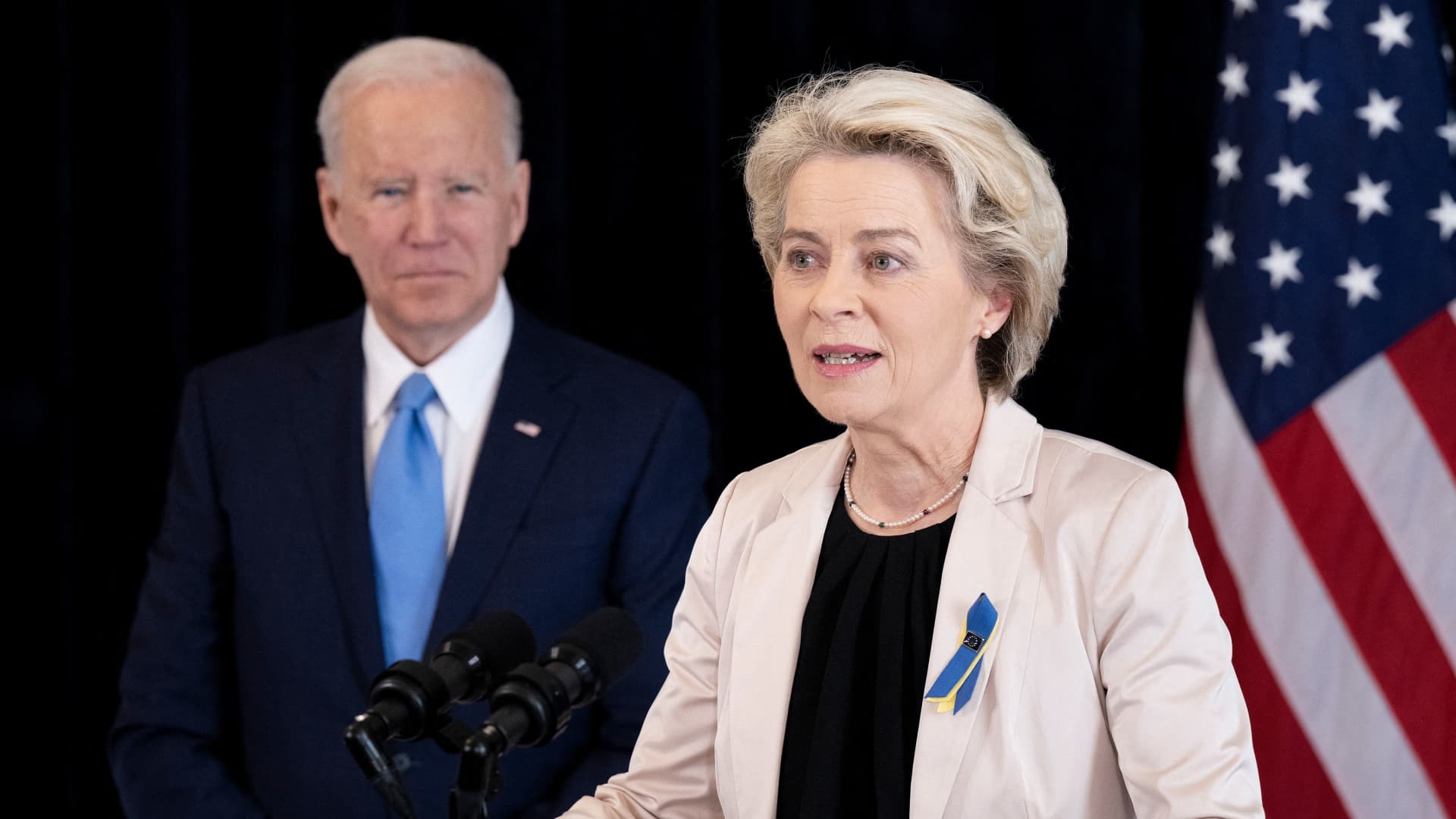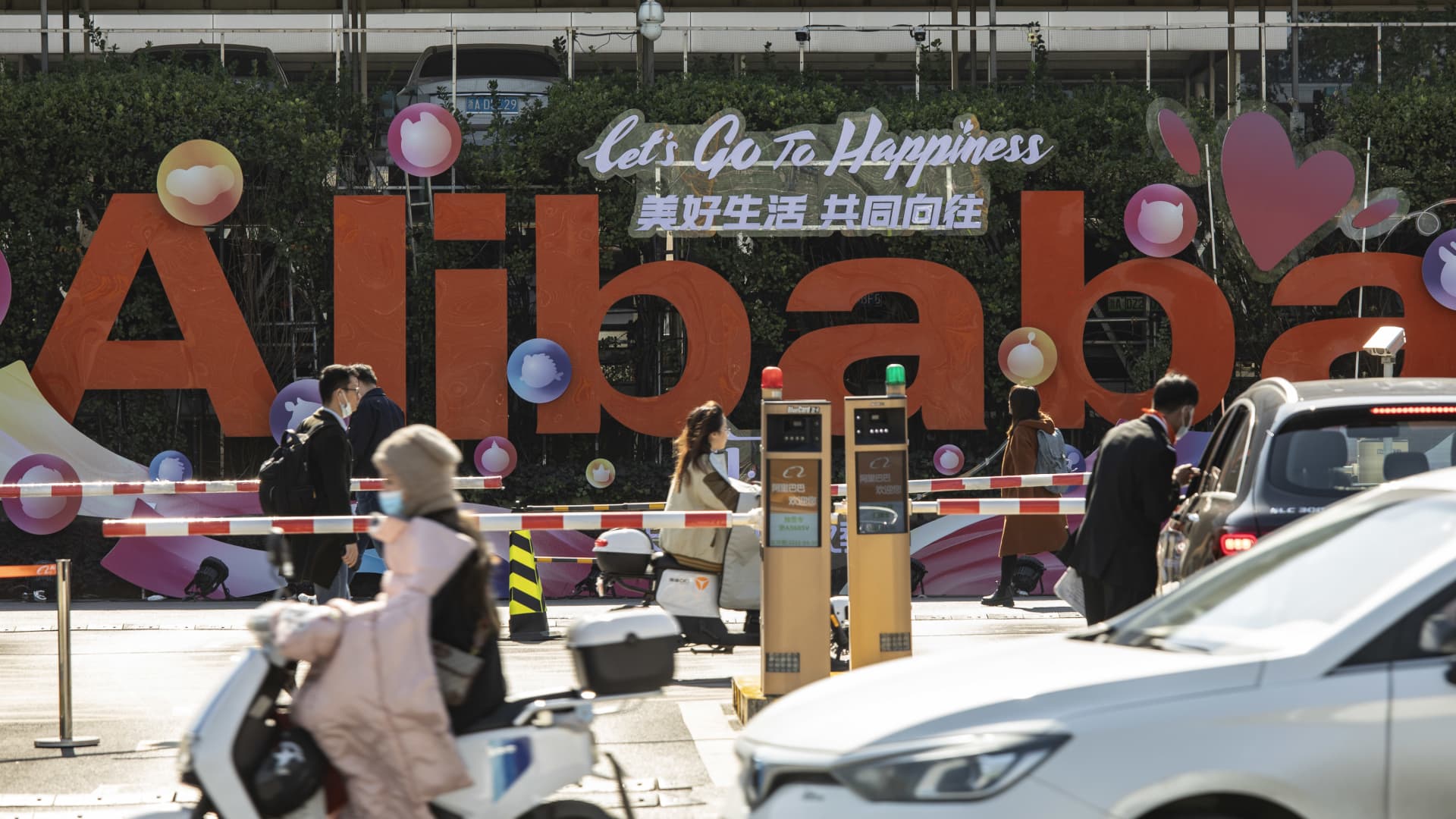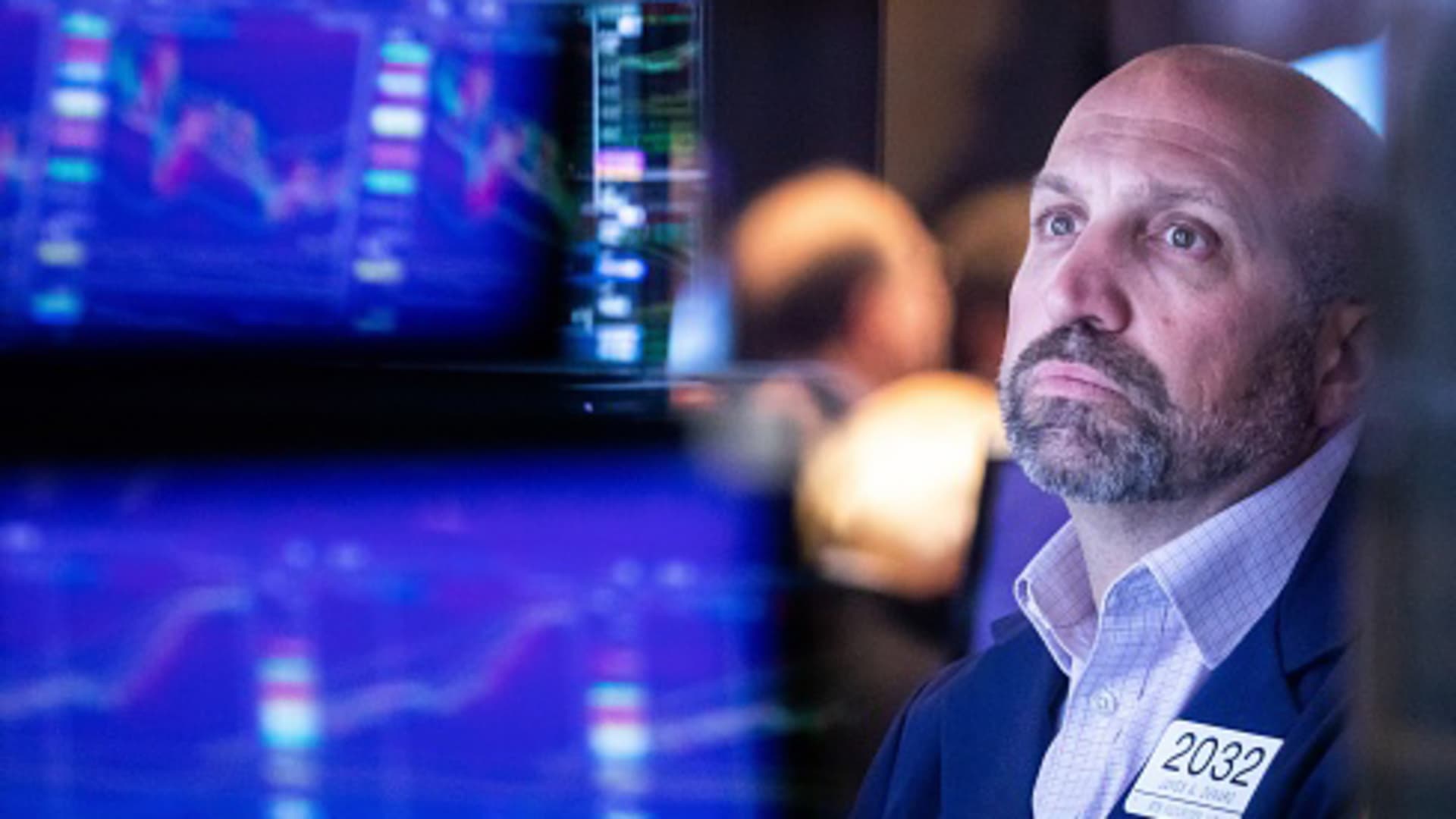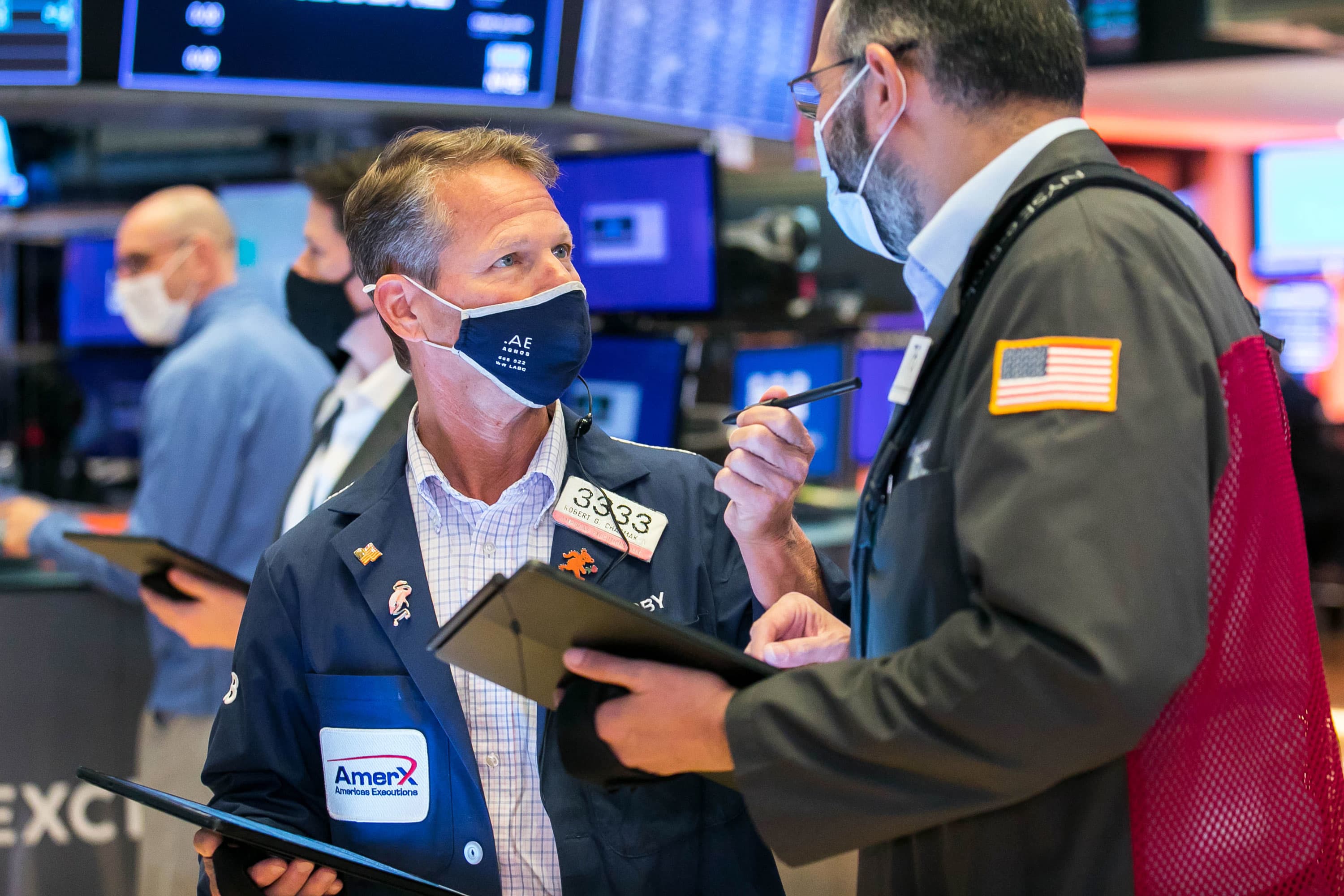China's $2.5 trillion savings could bring 'opportunities for growth,' HKEX CEO says
Hong Kong Exchange and Clearing's CEO Nicholas Aguzin said excess savings from Chinese households will bring "active" economic performance from China.

Nicolas Aguzin, chief executive officer of Hong Kong Exchanges & Clearing Ltd., speaks at event on the sidelines on the opening day of the World Economic Forum (WEF) in Davos, Switzerland, on Tuesday, Jan. 17, 2023.
Bloomberg | Bloomberg | Getty Images
Excess savings from Chinese households could be growth opportunities and will likely bring "active" economic performance for the Hong Kong Exchanges and Clearing, its CEO told CNBC on Thursday.
"I think the second and third quarter should be active quarters in terms of economic performance by China," Hong Kong Exchange and Clearing CEO Nicolas Aguzin told CNBC's Emily Tan.
He said he sees about $2.5 trillion dollars in excess savings accumulated by Chinese households during Covid.
"All that consumption that didn't have the opportunity ... all of a sudden is going to be turned back into the market, creating great opportunities for growth," Aguzin said.
The CEO's comments come after the bourse operator released full year earnings for 2022 that saw a nearly 20% drop in profits, with the total amount of profit attributable to shareholders at 10.08 billion Hong Kong dollars ($1.7 billion)
Meanwhile, HKEX saw a record fourth quarter high, with its profit attributable to shareholders at HK$2.98 billion, an 11% jump compared to 2021.
In HKEX's earnings statement, Aguzin said a "horizon of opportunity" lies ahead for the year.
"We will continue to see the release of Mainland China's domestic savings, the exponential growth of investment flow in and out of the Mainland, and the acceleration of international participation in the Mainland's economy," he said in the release.
Shares of HKEX gave up gains of more than 1% after the earnings release and closed flat on Thursday.
Challenging IPO environment
HKEX saw only 90 new IPO listings in 2022. That's compared to 182 IPOs in 2019 and 218 new listings in 2018, HKEX's market statistics showed.
"Macroeconomic and geopolitical conditions led to weak sentiment and softness across the global IPO market," the company said in its earnings release.
However, Aguzin said in the statement there were "signs of encouraging momentum in the IPO market" in the second half of the year.
Looking ahead to 2023, he told CNBC, "It should be a much more constructive year," and emphasized that there's a "positive momentum that we're having in China itself."
Stock picks and investing trends from CNBC Pro:
Bloomberg reported earlier Wednesday that Chinese authorities have asked state-owned enterprises to phase out using "Big Four" U.S. accounting firms.
Asked if there's a heightened risk of companies delisting, Aguzin answered: "I don't know how delistings will proceed, or if there will be. I mean that's a negotiation that's taking place and it will follow its own course," he said, adding that he believes there is value to having "more international interaction."
"We are the window that connects China and the world. And we are doing what we can in terms of making sure that there is more interaction, more connectivity."
Opportunities in the Middle East
Asked about efforts to attract Saudi Aramco, the state-owned oil giant in Saudi Arabia, Aguzin said: "What I'm most excited about the Middle East, is the opportunity that you have with the top 10 asset managers, sovereign wealth funds from there."
"They have almost $3.8 trillion under management," he added.
"We're always open to Middle East companies that can come if they wanted to. That can be channeled in this part of the world," he said.
The CEO said HKEX's signed memorandum of understanding with the Saudi Tadawul Group is still in its "early stages."
"We'll also have some exchange of personnel, so lots of initiatives – and we're in early days so we'll have to see how it turns out," he said without elaborating further.
"The key point is making sure we have that connectivity. It's two great markets — they have the same objectives that we have. They want to connect, they want to make sure that the investors have opportunities, that their companies can develop, that they can work on this diversification." he said.

 JaneWalter
JaneWalter 
































